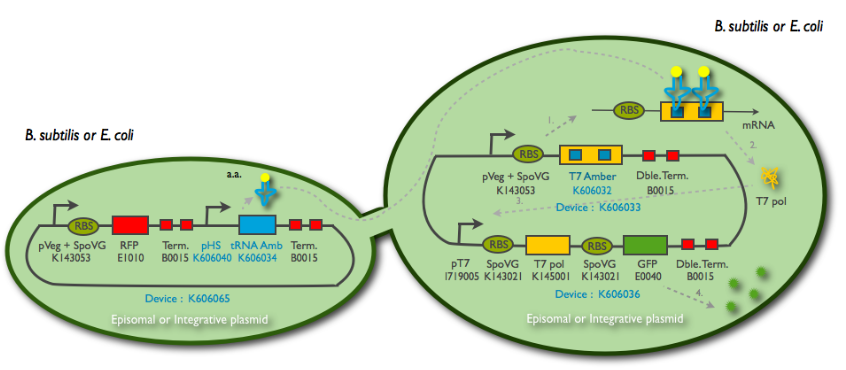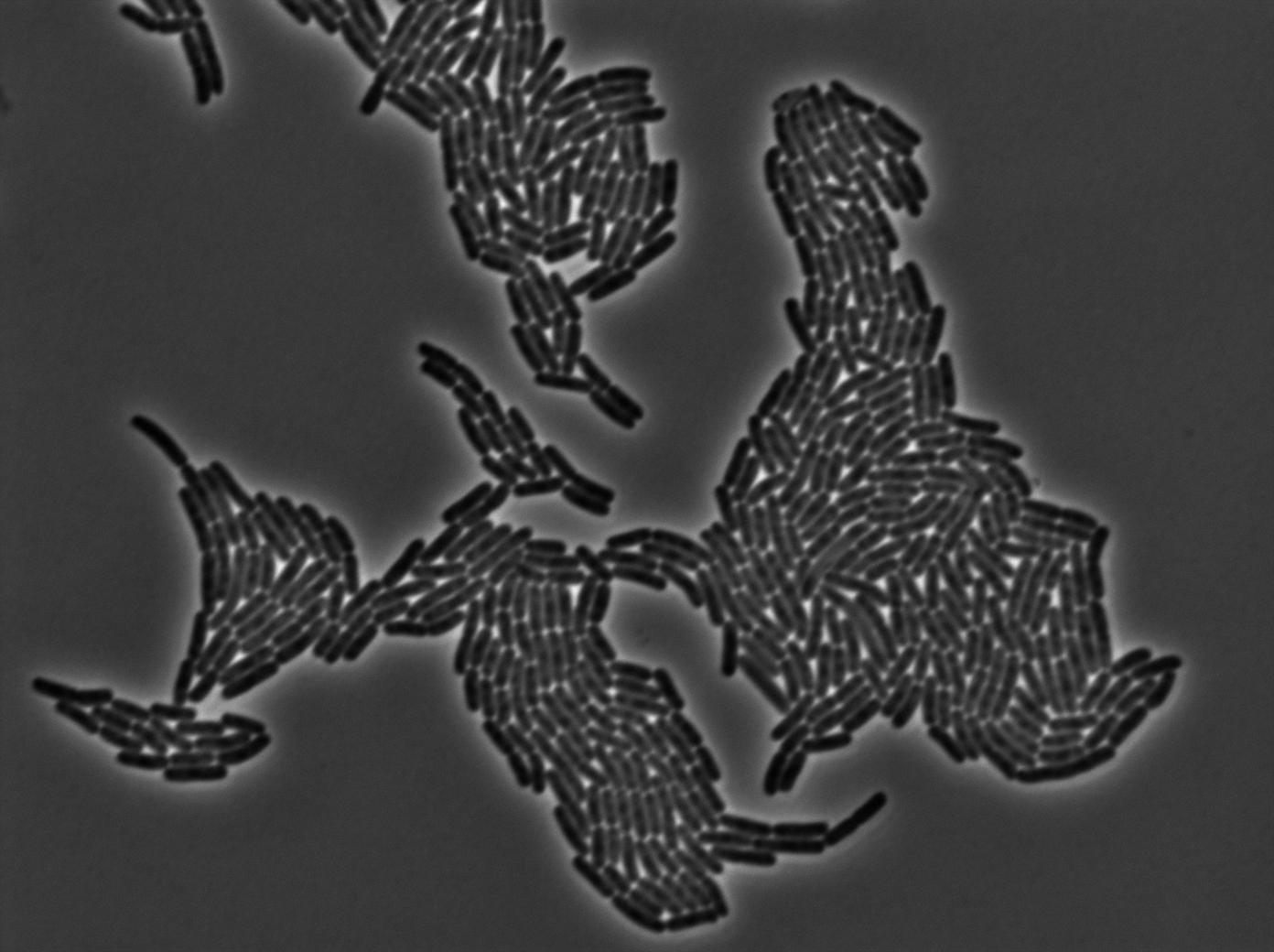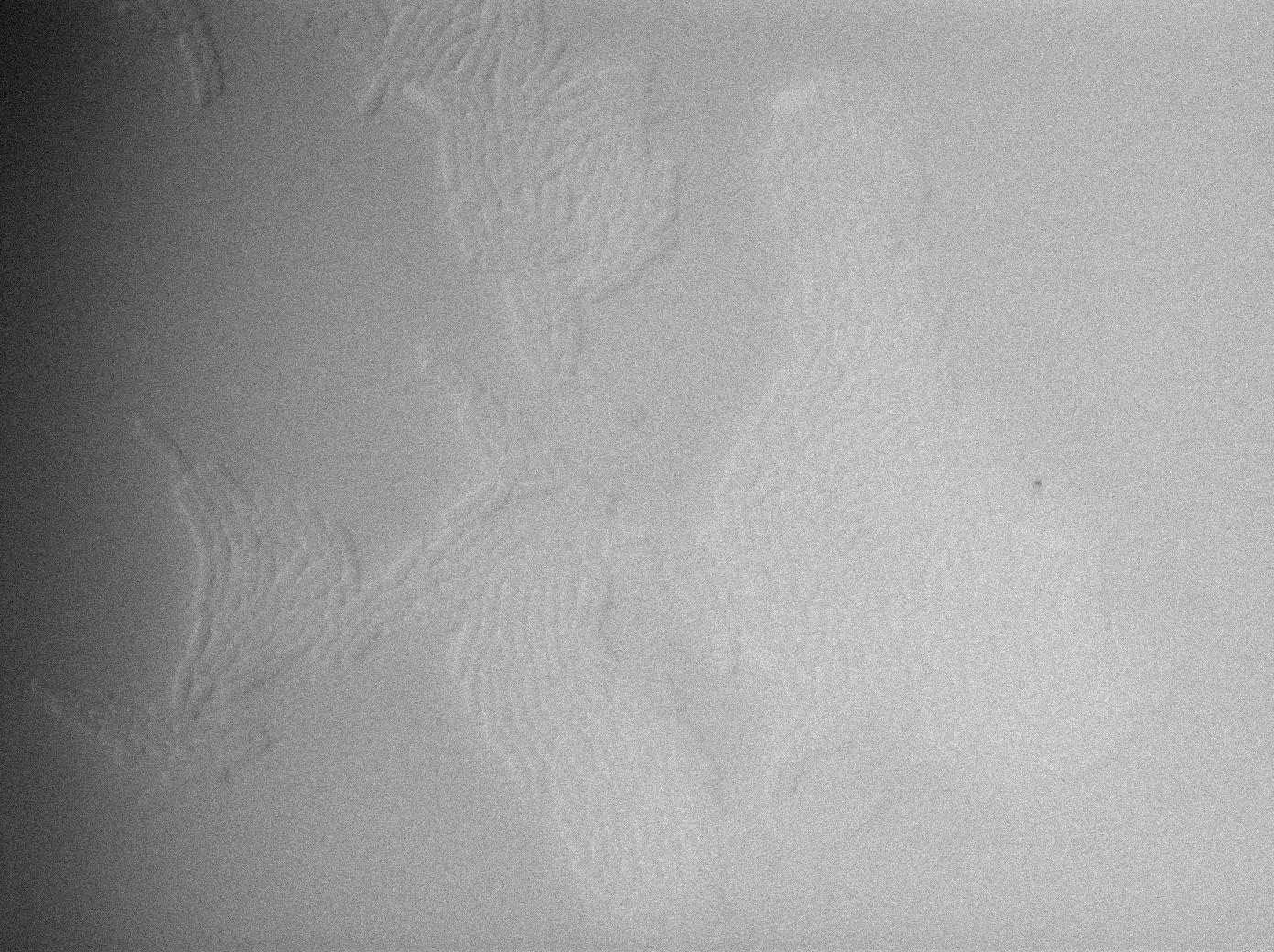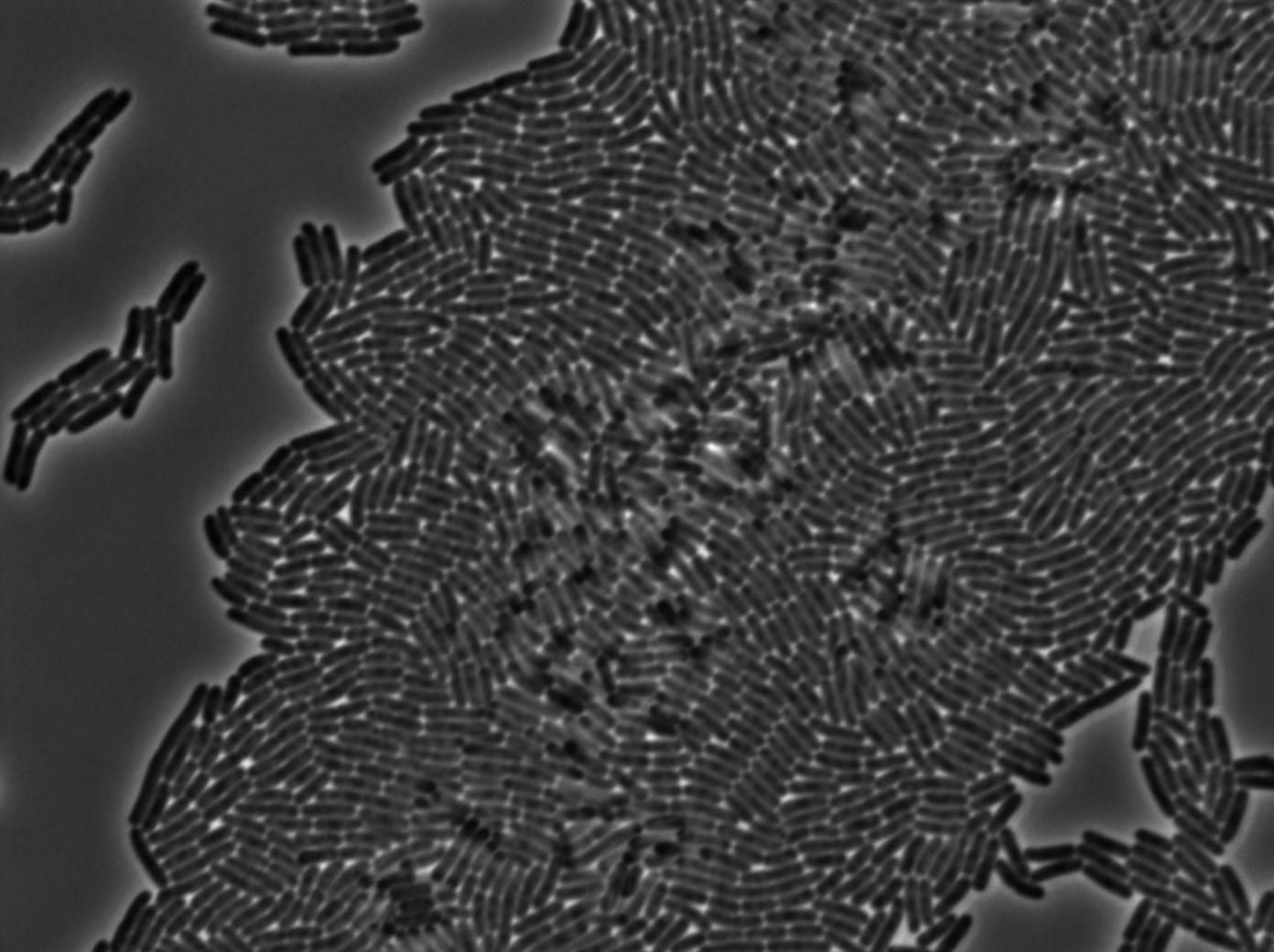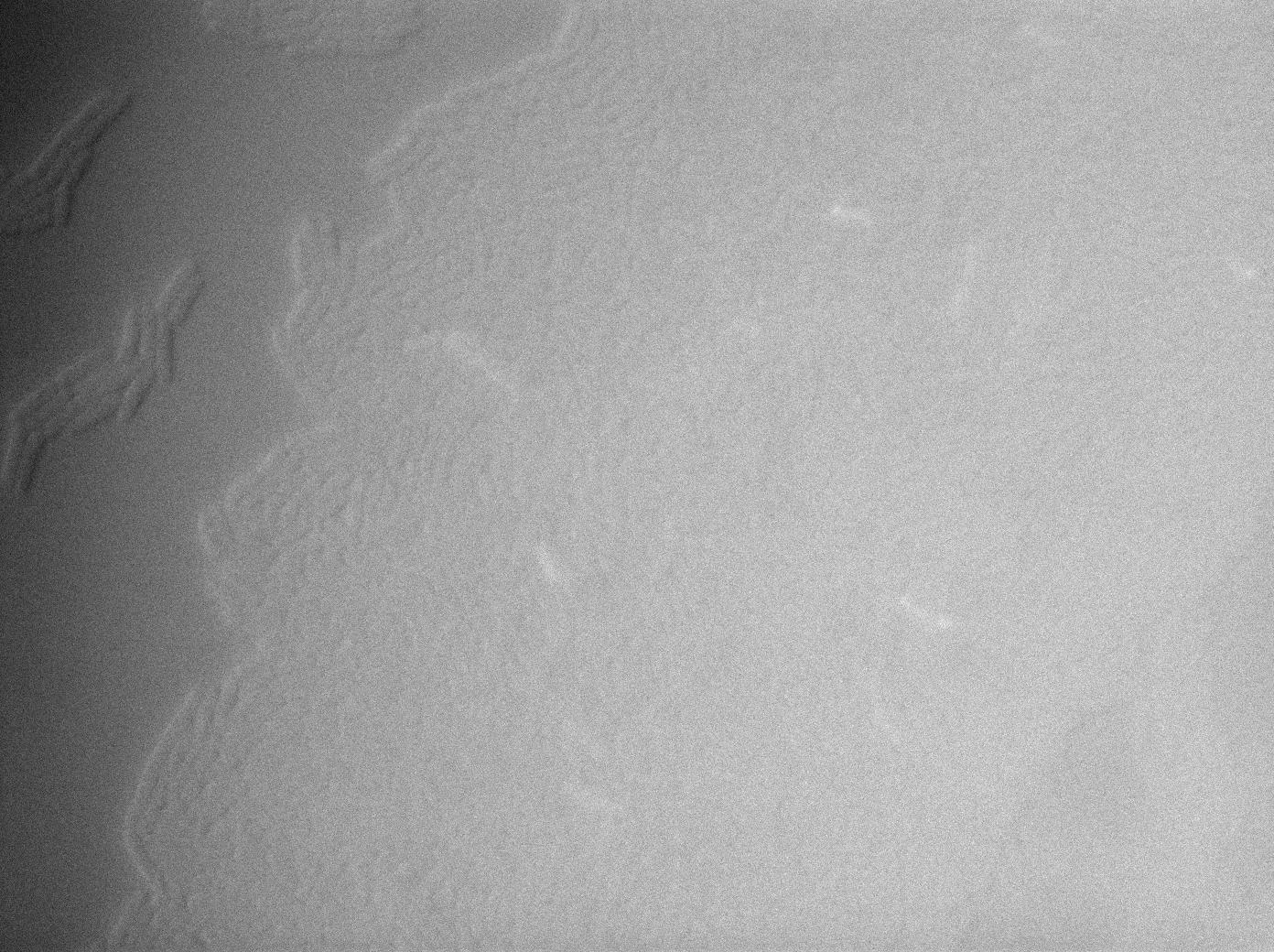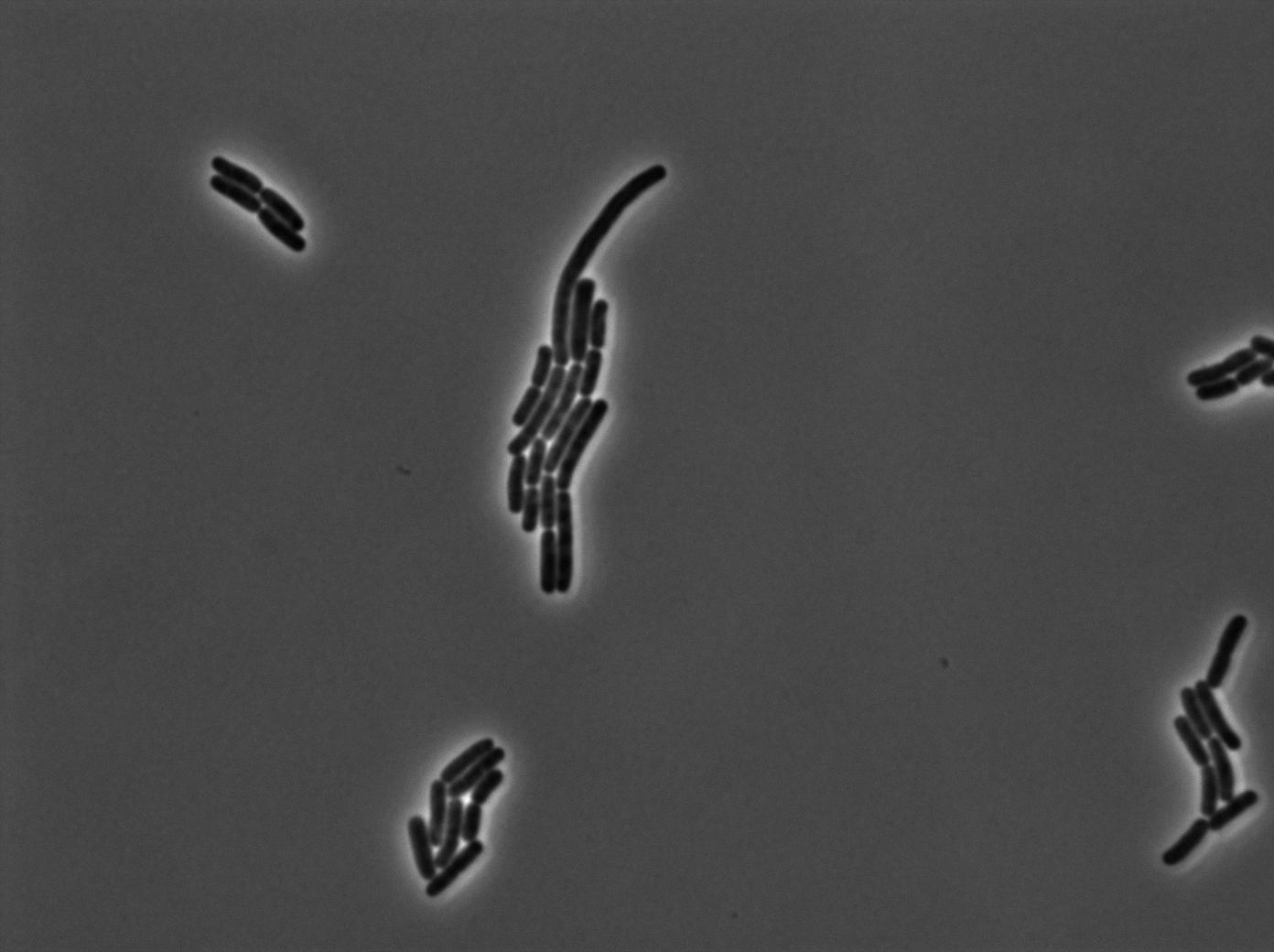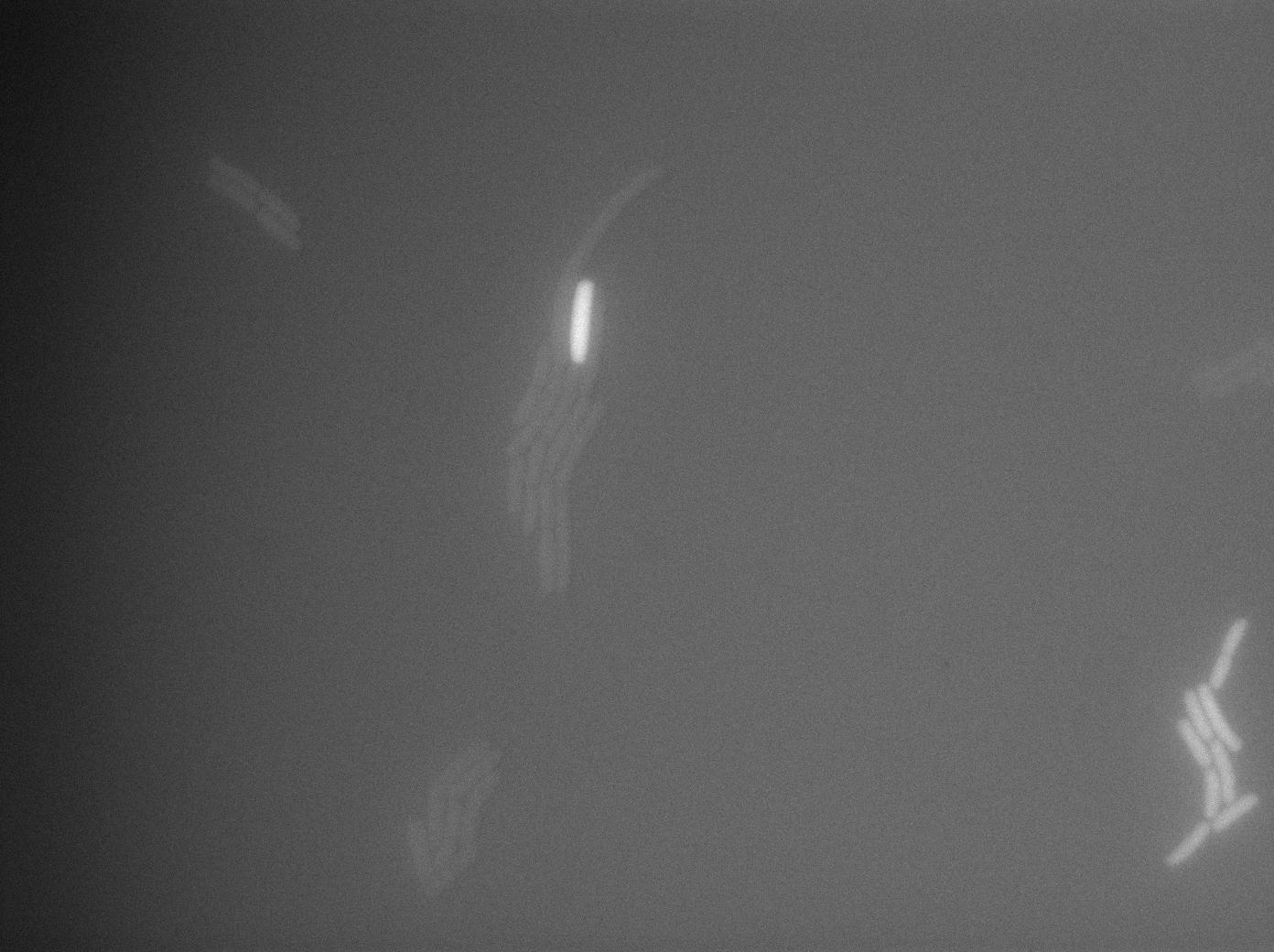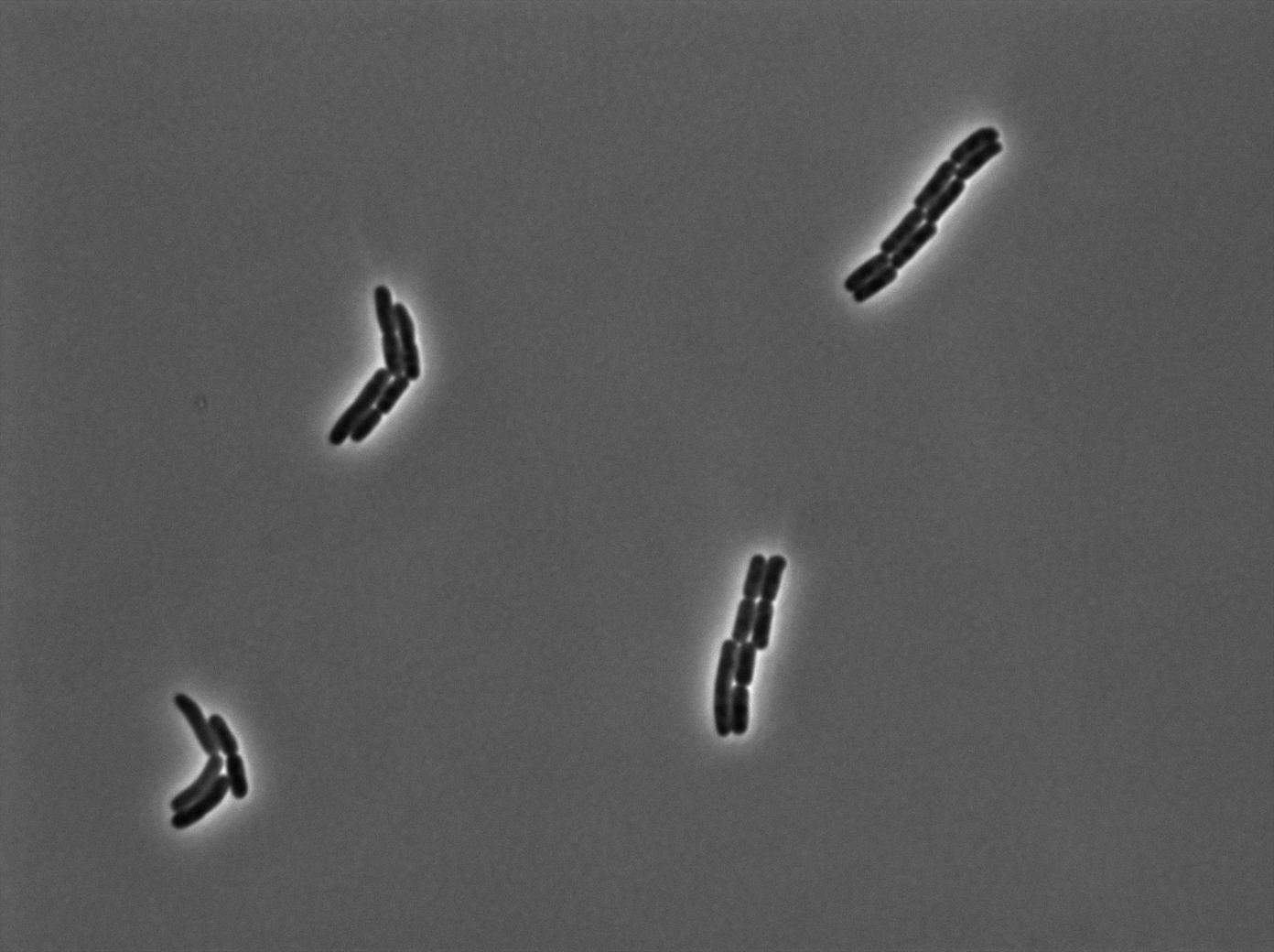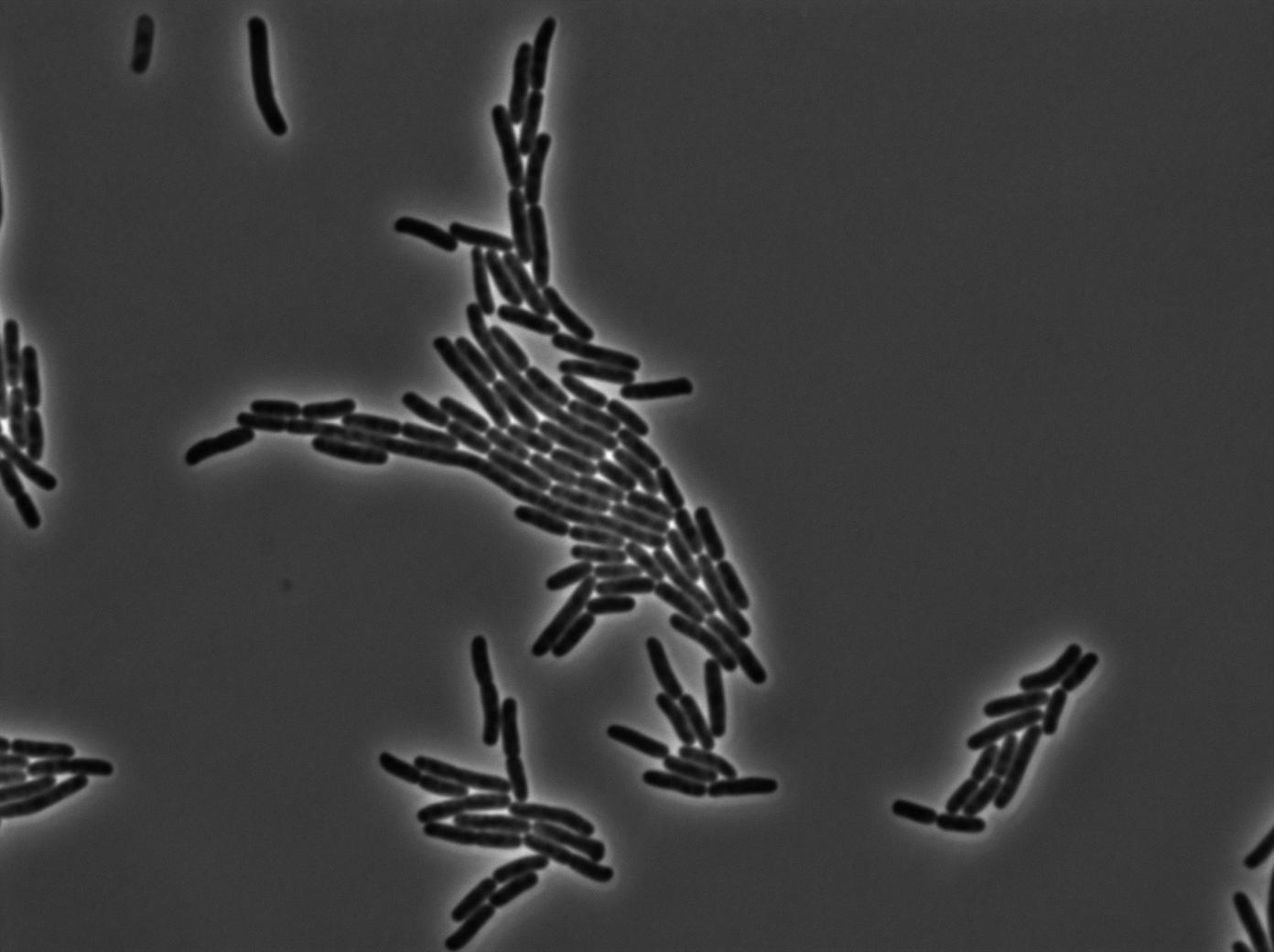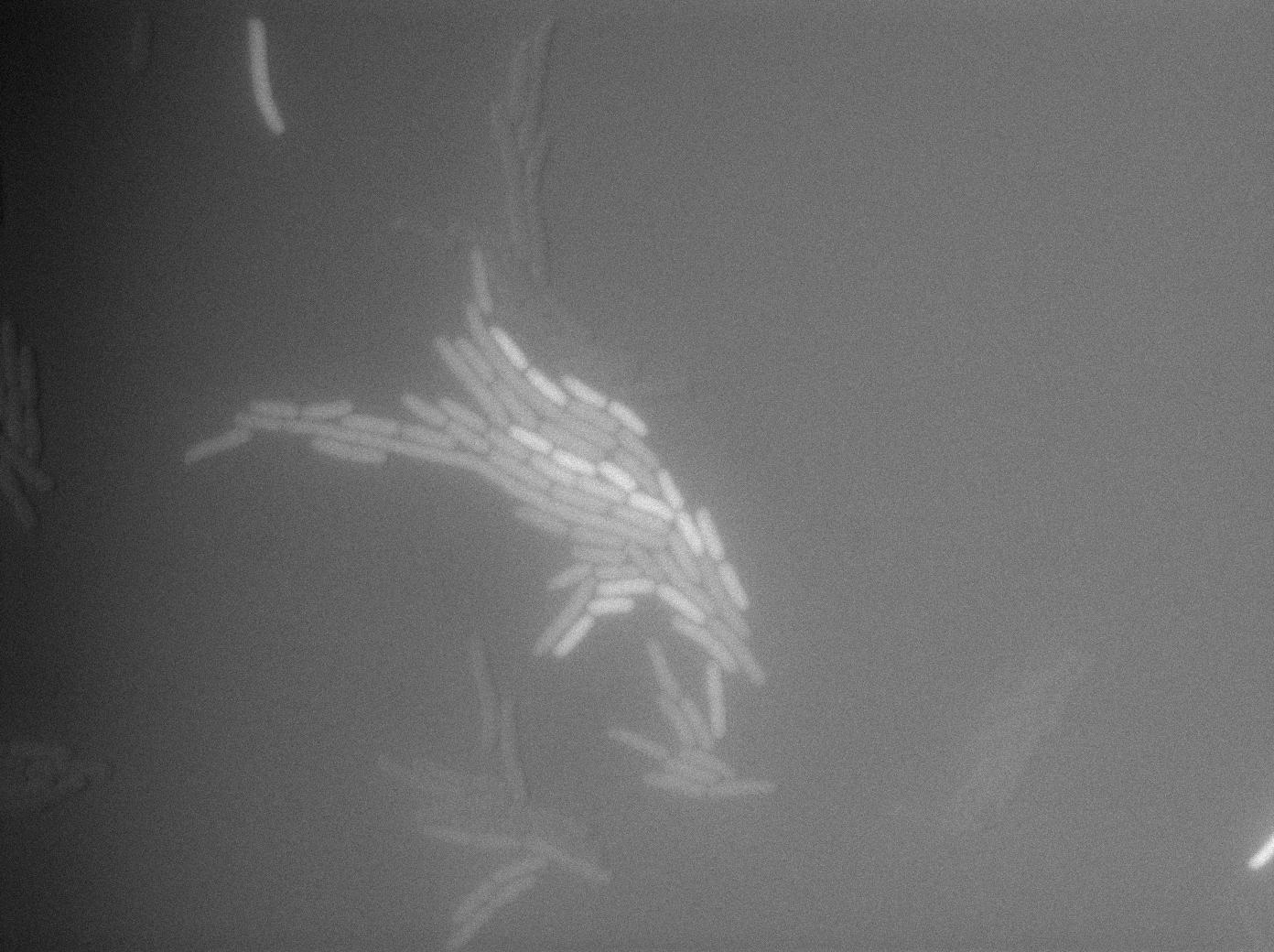Team:Paris Bettencourt/Experiments/tRNA diffusion
From 2011.igem.org
Aleksandra (Talk | contribs) (→Protocol) |
|||
| Line 1: | Line 1: | ||
{{:Team:Paris_Bettencourt/tpl_test}} | {{:Team:Paris_Bettencourt/tpl_test}} | ||
| - | + | <html> | |
| - | + | <h1>Experiments - tRNA diffusion diffusion</h1> | |
| - | + | <h2>Summary</h2> | |
| + | <h2>Design overview</h2> | ||
| + | </html> | ||
| + | [[File:tRNA_amber_principle.jpg|center|The tRNA Amber diffusion system principle]] | ||
| + | <html> | ||
| + | <center><p>Principles of the tRNA amber diffusion system</p></center> | ||
| - | + | <h2>Parts and BioBricks construction</h2> | |
| - | + | ||
| - | + | <b>INSERT CLONING PLAN HERE</b> | |
| - | + | ||
| - | + | <h2>Characterization of the tRNA amber</h2> | |
| - | + | <h3>Protocol</h3> | |
| - | + | <p>In order to characterize the tRNA amber suppressor, as well as the pHyperspank, a special part was made: Pveg-SpoVG-GFP amber-TT.</p> | |
| - | + | <p>A double transformation was done with minipreps of two plasmids of different antibiotic resistances : pSB1C3 holding the tRNA under the control of pHyperspank and pSB1AK3 holding the GFP with the amber codon under the control of a constitutive promotor. Two groups of cultures of each picked colony were made. One group was cultured in rich medium without IPTG whilst the other group was cultured in rich medium with IPTG (4mM in 10mL). A culture of the strain holding GFP amber alone was grown in parallel. The two tubes of each colony were compared along with the negative control (GFP amber alone). Cultures were then diluted for microscopy, glycerols, and future experiments. We used the following strains to characterize this system:</p> | |
| - | Two groups of cultures | + | |
| - | + | <p><em>GFP amber</em> | |
| - | < | + | Strain holding GFPmut3B, mutated with a single amber mutation under the control of the constitutive promotor Pveg, in the plasmid pSB1AK3 (AmpR).</p> |
| - | < | + | |
| - | </ | + | |
| - | + | <p><em>tRNA amber suppressor</em> | |
| + | Strain holding the tRNA amber suppressor, under the control of IPTG inducible strong promotor pHyperspank, in the plasmid pSB1C3 (CmR).</p> | ||
| - | + | <p><em>Double transformant</em> | |
| - | + | Double transformant of the two previous constructs in their plasmids respectively.</p> | |
| + | <p>Two groups of cultures are grown: with or without IPTG.</p> | ||
| + | <p>Direct observation under fluorescence lamp and microscopy was used to characterize this system.</p> | ||
| - | = | + | <br>We have also <b><a href="https://2011.igem.org/Team:Paris_Bettencourt/Experiments/pHyperSpank">characterised the pHyperSpank promoter</a></b>, compatible with <i>B.subtilis</i> and which is used in this system. |
| - | |||
| - | + | <h3>Characterization of the tRNA biobrick (fluorescence lamp)</h3> | |
| - | + | <p>The cultures of strains having transformed both tRNA amber suppressor and GFP amber were strongly fluorescent, while the culture of the GFP amber alone as well as the culture of the colony without IPTG induction showed basal fluorescence. | |
| + | </p> | ||
| + | </html> | ||
| + | [[File:GFPamberwithtRNA.jpg|350px|thumb|center|On the left, the culture of the strain holding GFP amber alone under the control of Pveg (constitutive promotor). On the right, the culture of the double transformant with IPTG induction (4mM)]] | ||
| + | <html> | ||
| - | + | <h3>Characterization of the tRNA biobrick (microscopy)</h3> | |
| - | + | <h4>GFP amber</h4> | |
| - | + | <p>One of our strains contains only the plasmid with the GFP amber under the control of the constitutive promotor Pveg, without the amber suppressor tRNA. In this situation cells do not glow. This obervation constitutes a reliable negative control.</p> | |
| + | <h4>GFP amber with tRNA amber suppressor</h4> | ||
| + | <p>The second strain contains the full construct, and the production of tRNA is tuned by pHyperspank which is activated by IPTG. In order to make a negative control, we plated them without inducing with IPTG. In this situation cells glow with a lower intensity than with the previous construct. We can also notice that some of the cells strongly leak.</p> | ||
| + | |||
| + | <h4>GFP amber with tRNA amber induced by IPTG</h4> | ||
| + | |||
| + | <p>The last result is given by testing the full construct with IPTG induced cells. Each cell glows with a very weak variability and the luminance is significant.</p> | ||
| + | |||
| + | </html> | ||
{| border="1" class="wikitable" style="text-align: center;" | {| border="1" class="wikitable" style="text-align: center;" | ||
Revision as of 13:54, 19 October 2011

Experiments - tRNA diffusion diffusion
Summary
Design overview
Principles of the tRNA amber diffusion system
Parts and BioBricks construction
INSERT CLONING PLAN HERECharacterization of the tRNA amber
Protocol
In order to characterize the tRNA amber suppressor, as well as the pHyperspank, a special part was made: Pveg-SpoVG-GFP amber-TT.
A double transformation was done with minipreps of two plasmids of different antibiotic resistances : pSB1C3 holding the tRNA under the control of pHyperspank and pSB1AK3 holding the GFP with the amber codon under the control of a constitutive promotor. Two groups of cultures of each picked colony were made. One group was cultured in rich medium without IPTG whilst the other group was cultured in rich medium with IPTG (4mM in 10mL). A culture of the strain holding GFP amber alone was grown in parallel. The two tubes of each colony were compared along with the negative control (GFP amber alone). Cultures were then diluted for microscopy, glycerols, and future experiments. We used the following strains to characterize this system:
GFP amber Strain holding GFPmut3B, mutated with a single amber mutation under the control of the constitutive promotor Pveg, in the plasmid pSB1AK3 (AmpR).
tRNA amber suppressor Strain holding the tRNA amber suppressor, under the control of IPTG inducible strong promotor pHyperspank, in the plasmid pSB1C3 (CmR).
Double transformant Double transformant of the two previous constructs in their plasmids respectively.
Two groups of cultures are grown: with or without IPTG.
Direct observation under fluorescence lamp and microscopy was used to characterize this system.
We have also characterised the pHyperSpank promoter, compatible with B.subtilis and which is used in this system.
Characterization of the tRNA biobrick (fluorescence lamp)
The cultures of strains having transformed both tRNA amber suppressor and GFP amber were strongly fluorescent, while the culture of the GFP amber alone as well as the culture of the colony without IPTG induction showed basal fluorescence.
Characterization of the tRNA biobrick (microscopy)
GFP amber
One of our strains contains only the plasmid with the GFP amber under the control of the constitutive promotor Pveg, without the amber suppressor tRNA. In this situation cells do not glow. This obervation constitutes a reliable negative control.
GFP amber with tRNA amber suppressor
The second strain contains the full construct, and the production of tRNA is tuned by pHyperspank which is activated by IPTG. In order to make a negative control, we plated them without inducing with IPTG. In this situation cells glow with a lower intensity than with the previous construct. We can also notice that some of the cells strongly leak.
GFP amber with tRNA amber induced by IPTG
The last result is given by testing the full construct with IPTG induced cells. Each cell glows with a very weak variability and the luminance is significant.
 "
"

